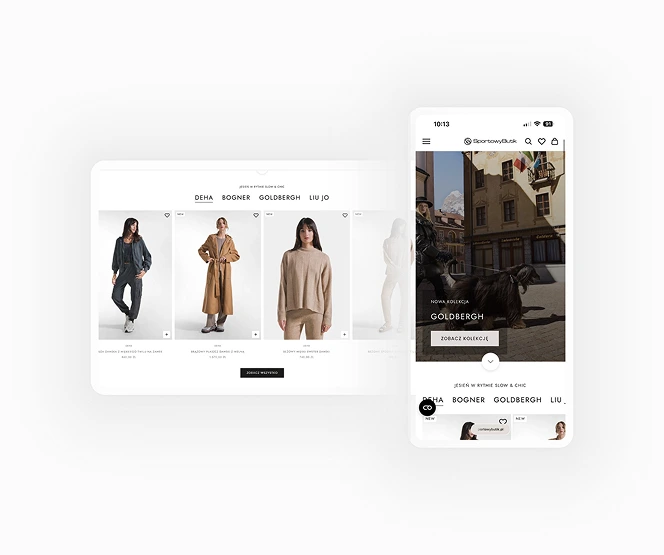







Comprehensive store construction from scratch, including selection and customization of the template, interface design, optimization for mobile devices. Agencies implement “tailor-made” solutions by developing custom Shopify templates.
Moving products, customers, orders, etc. from an old platform (e.g. Magento, Shoper, AtomStore) to Shopify with minimal downtime. Professional agencies use migration tools and scripts to completely relieve the client from the technical side of this operation.
Development of dedicated applications and custom functions (e.g. product personalization wizard, special promotion mechanisms). Polish agencies specialize in building applications for Shopify, also for the Shopify Plus version, providing solutions perfectly tailored to the business needs of customers.
Connecting the store with ERP/CRM/PIM systems, marketing automation tools, marketplace platforms (e.g. Allegro, Amazon) or payment and logistics providers. Shopify allows integration with many systems — agencies have already configured synchronization with SAP, Comarch, Odoo or acoustic storage systems, for example. Thanks to this, data (e.g. stocks, prices) are synchronized in real time and order processing is carried out automatically.
Monitor the operation of the store, respond quickly to needs (e.g. new features, bug fixes), training of customer staff. Unlike a one-time service, a good partner remains at your disposal in the further stages of e-commerce business development.




If the current growth suddenly stops or decreases, a professional agency can conduct a UX audit and suggest improvements (e.g. improvements to the website, new marketing campaigns).
After the launch of the product, it is worth generating as much buzz as possible. Experienced professionals will develop a go-to-market strategy to increase your chances of success — just like the Molekule brand, which sold hundreds of air purifiers during pre-sales thanks to the work of a Shopify partner.
When the internal team does not have the appropriate skills (programming, design, SEO, marketing), the agency will quickly fill these gaps. After several years of independent work, you can come to the conclusion that the support of experts is needed.
Plans to develop abroad or multi-channel sales (offline + online + marketplaces) require experience in multilingualism, multicurrency and international logistics. The agency will help set up the store for new countries and sales channels.
When an owner or team is involved in production, logistics or customer service, there is no time to do marketing and store development on their own. Then delegating these tasks to the agency allows you to focus on the current business.
.jpg)



.png)




